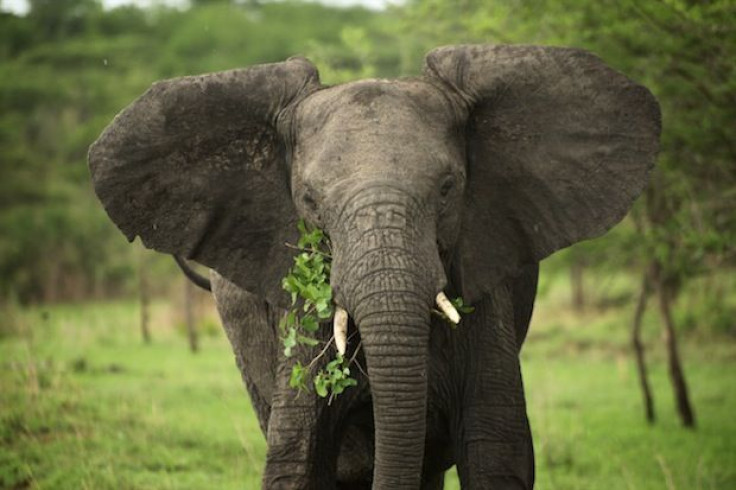Tanzania Loses 60 Percent Of Elephants In Six Years Due To Ivory Poaching, Migration

Tanzania has lost more than half of its elephants in the past six years due to ivory poaching and migration. The number of elephants in the East African nation dropped 60 percent from 110,000 in 2009 to 43,529 in 2014. Investigators who collected DNA from the tusks of slaughtered elephants across the African continent concluded that poachers are killing elephants on an industrial scale in Tanzania, according to media reports.
The findings led Tanzania’s tourism ministry to launch a campaign Thursday to end wildlife crime. A ton of confiscated ivory will also be crushed in New York City’s Times Square on Friday to spread awareness about wildlife trafficking. Tourism is the biggest source of foreign exchange in Tanzania, which boasts safaris on the Serengeti plains and offers stunning views of Mount Kilimanjaro, and the elephants play a vital role. However, elephant poaching has reached its highest level in decades.
"Elephants are at the top of the 'wish list' for many tourists who come into this country, and tourism generates over 17 percent of our gross domestic product," said Lazaro Nyalandu, Minister of Natural Resources and Tourism, according to the Daily Mail. “Our elephants are a great asset to this country in many ways and my government is determined to stop the slaughter. But we cannot do it alone.”
Nyalandu also said the population decline was in part due to migration, and that the ministry is trying to find the missing elephants. He did not say whether Tanzania’s missing elephants could have crossed over the border into neighboring Kenya or Zamiba, which have large elephant populations.
"Were they killed or did they move out of the observed area? Usually when such a large animal reduction is observed, there are a comparable number of carcasses also observed. That was not the case here," Nyalandu said in a statement obtained by Reuters.
Wildlife trade monitoring group Traffic accused the Tanzanian government of denying the dire poaching situation. Tanzania’s elephant population had doubled to 110,000 in 2009 from 55,000 in 1989 as a result of a widespread anti-poaching initiative.
"The government's figures show Tanzania lost tens of thousands of elephants over the past decade," Traffic executive director Steven Broad told Reuters earlier this month. "It is incredible that poaching on such an industrial scale has not been identified and addressed before now."
© Copyright IBTimes 2024. All rights reserved.











